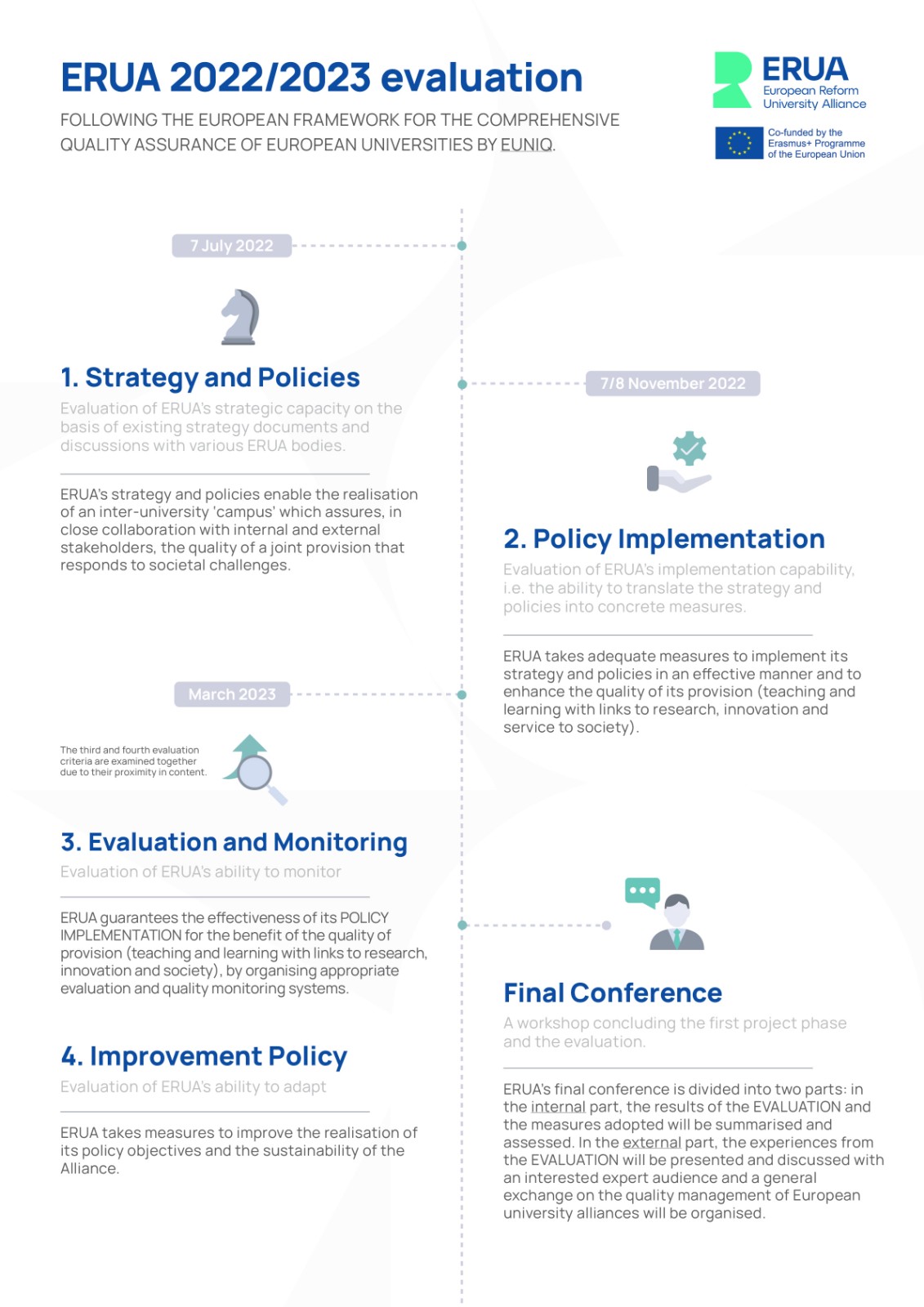How do you design an effective European University Alliance? This is currently one of the most exciting questions in European higher education policy. To answer it, the European Reform University Alliance (ERUA) is conducting a self-evaluation using an innovative approach, coordinated by the University of Konstanz.
The University of Konstanz is a member of ERUA, an alliance consisting of five young universities that share a vision of universities as creative spaces and a commitment to experimental approaches. Even when it comes to its own evaluation, the alliance leaves beaten paths. “An experimental evaluation perfectly fits a reform university alliance,” says Christine Abele, head of Quality Management (QM) at the University of Konstanz. ERUA has designed an innovative procedure: the evaluation is not carried out at the end of the funding period, but cumulatively across different campuses at three different points in time during the funding period. In addition, experts in the governance of teaching and research are involved as external reviewers. Christine Abele: “We would like to undergo as comprehensive a review as possible and allow the external reviewers to look directly into the ‘engine room’ of our alliance – even to the point of participating in selected internal consultations.”
The focus is on (1) the alliance’s strategic capacity, (2) implementation capacity, (3) monitoring capacity, and (4) adaptability. The topics basically follow the EUniQ framework; however, the assessment is conducted in a completely different way. Each step is evaluated individually and the conclusions feed directly into the next step. For example, ERUA first implements the evaluation results on the alliance’s strategic capacity. A few months later, this implementation – together with other implementation issues – is directly included in the next evaluation of the alliance’s implementation capacity.
This cumulative process, which extends over more than a year and in which one step merges into the next, was designed to have a particularly strong impact compared to conventional evaluation methods. “The first results are very promising,” Abele confirms. “For example, we have understood the importance of anchoring participation in an alliance much more strongly in the individual strategies of the participating universities. Because this is the key to a strong, steadily growing partnership.”
For questions you can contact: Frank Wehinger, University of Konstanz, Staff Unit Quality Management
You can find additional information on the ERUA cumulative evaluation on the corresponding website.










